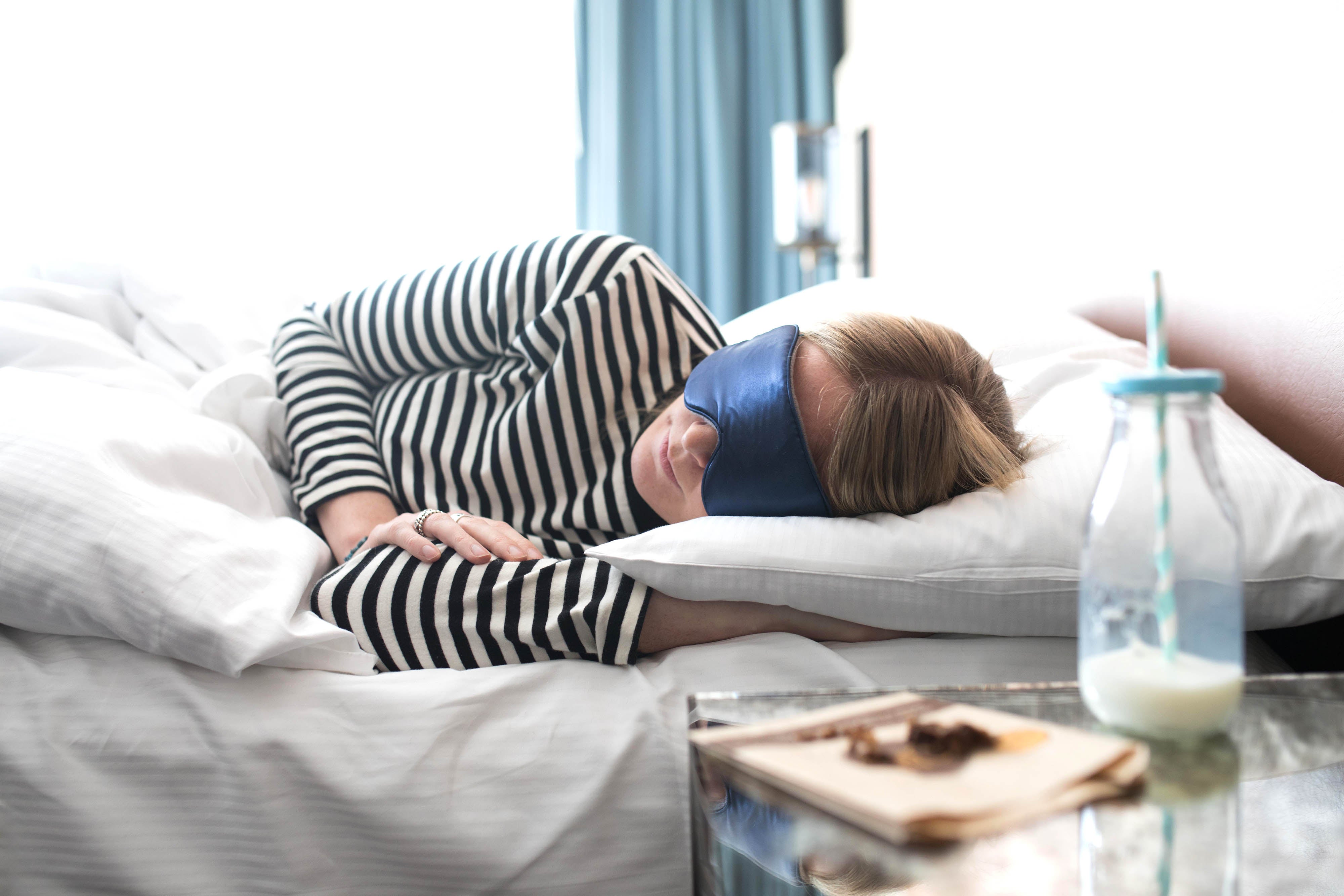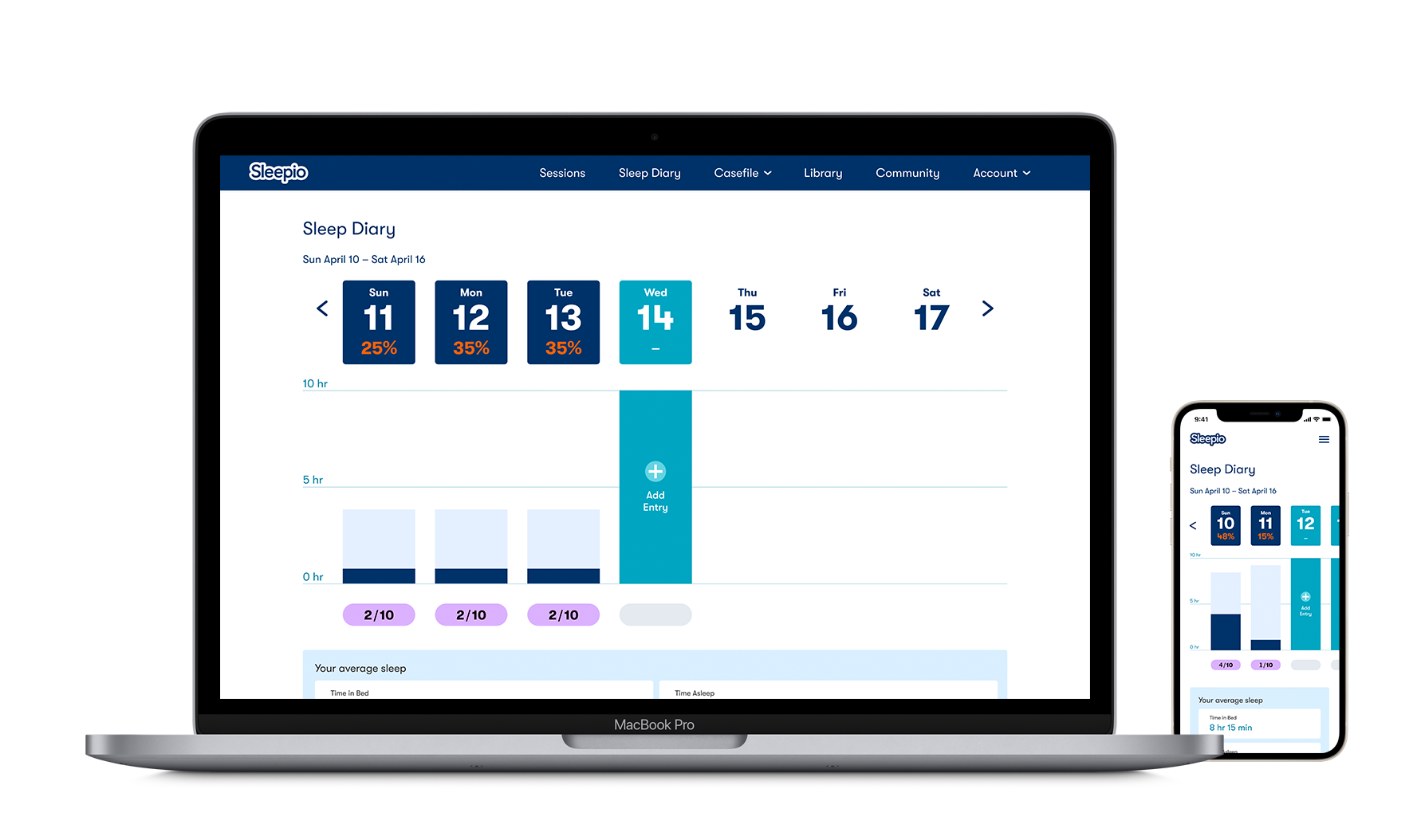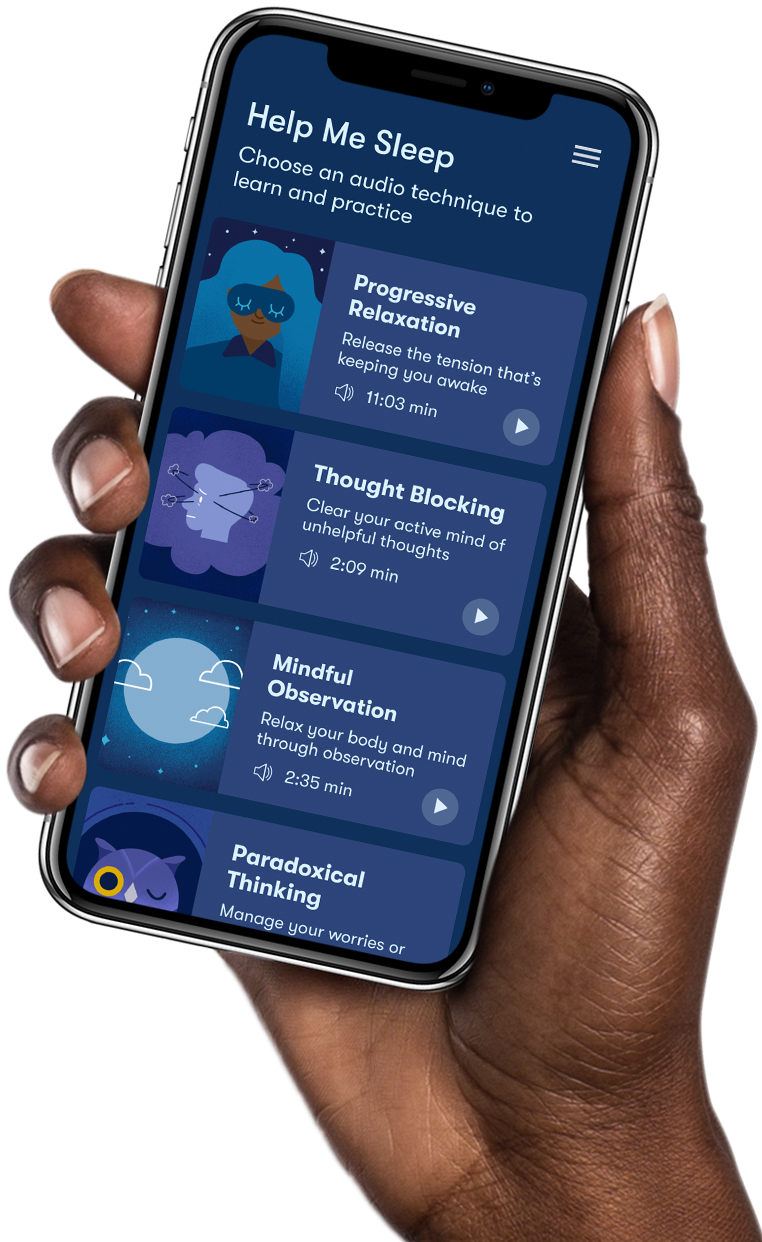Patients with insomnia to be prescribed self-help app instead of sleeping pills
App uses algorithm to provide personalised cognitive behavioural therapy

Hundreds of thousands of people suffering from insomnia will be offered treatment through a mobile phone app instead of a prescription for sleeping pills.
GPs will be able to propose artificial intelligence app Sleepio to struggling patients after the National Institute for Healthcare Excellence (Nice) recommended it as an effective alternative to medication.
The app uses an algorithm to provide a personalised cognitive behavioural therapy (CBT) programme for patients, helping them to identify and tackle the factors that contribute to their insomnia.
Patients will focus on identifying their thoughts, feelings and behaviour that lead to experienced bouts of sleeplessness with the goal of promoting a healthy sleep routine.
The digital treatment will offer a sleep test, monitor sleeping patterns, and provide weekly interactive CBT sessions.

A daily sleep diary will help users track behavioural habits – inputted manually or taken from devices such as a Fitbit – which will be used to provide tailored advice.
They will also have access to an electronic library of help articles, online tools and community support.
Each programme is designed to be completed over six weeks however, patients will have access to the app for up to a year from registration.
Evidence from 12 random trials provided to Nice’s advisory committee showed Sleepio was more effective at reducing insomnia than sleeping pills and sleep hygiene.
Many GPs are apprehensive to prescribe sleeping pills - such as zopiclone and zolpidem - as they can be dependency forming, and so Sleepio may be able to lead to a reduction of patients relying on medication.
At the same time, the app could also help the NHS save money after analysis found healthcare costs were lower after one year of it being used as treatment - mainly due to fewer GP appointments being booked and prescriptions being written.

Jeanette Kusel, acting director for MedTech and digital at Nice, said: “Until now people with insomnia have been offered sleeping pills and taught about sleep hygiene, so our committee’s recommendation of Sleepio provides GPs and their patients with a new treatment option.
“Our rigorous, transparent and evidence-based analysis has found that Sleepio is cost saving for the NHS compared with usual treatments in primary care. It will also reduce people with insomnia’s reliance on dependence forming drugs such as zolpidem and zopiclone.
“This is a good example of where digital health technology can help the NHS. The evidence has shown using Sleepio reduces the number of GP appointments people with insomnia need and will also cut the number of prescriptions for sleeping pills delivered by pharmacists.”
Join our commenting forum
Join thought-provoking conversations, follow other Independent readers and see their replies
Comments